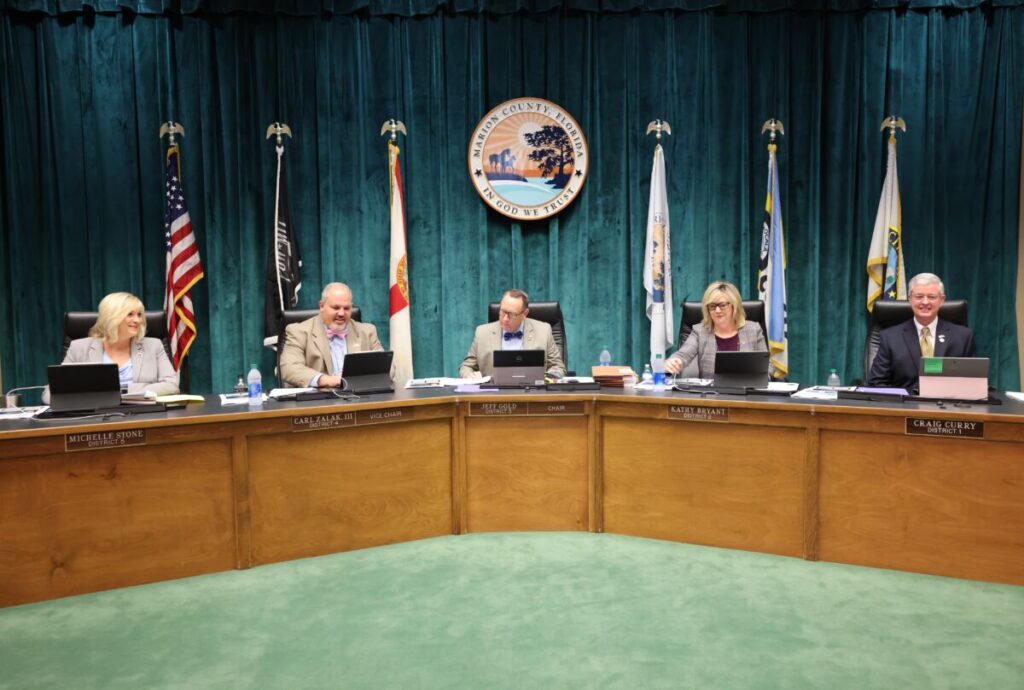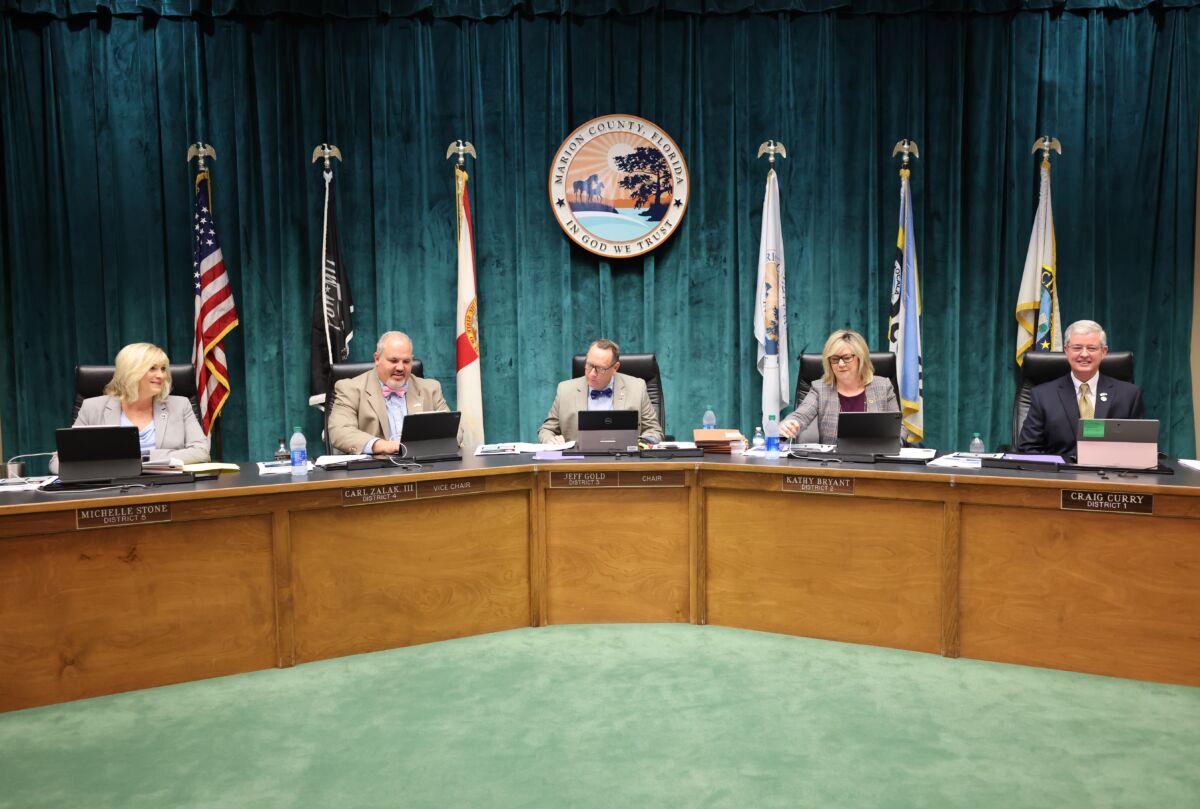Marion County Community Services, Community Foundation to present ARPA funding proposals

The Marion County Commission meets at the McPherson Governmental Complex in Ocala, Fla. on Tuesday, Nov. 2, 2021. [Bruce Ackerman/Ocala Gazette] 2021.

The Marion County Commission meets at the McPherson Governmental Complex in Ocala on Nov. 2, 2021. [Bruce Ackerman/Ocala Gazette]
The two organizations presented their proposals at the regular MCBOCC meeting on Dec. 7.
First, Lauren Deiorio, the president & executive director of the Community Foundation for Ocala/Marion County, gave some background on the Community Foundation and its scope of work, and then, pitched two proposals for the funds.
The first option saw the Community Foundation control the funds and assist grant applicants from all aspects of the grant request process–from creating the applications and communicating with charities to inspecting, filing, and documenting the applications along with correcting any charity grant application problems they encounter during the process.
The second option the Community Foundation proposed, which Diorio pointed out was the preferred option after spending time speaking with county staff, was her organization partnering with Community Services to administer the remaining funds through a similar process as the first option.
In the second option, however, the foundation proposed a set scope of work with fee-for-service based upon Community Services’ needs.
The options proposed by the Community Foundation described a general process of administering the grant funds but did not provide any specific programs that the funding could be used for.
Diorio also mentioned how closely the Community Foundation and Community Services had worked, and that she believed Community Services should take the lead on any decision-making regarding where the funding was to go.
Next to present was Marion County Community Services Director Cheryl Martin, and during her presentation, she proposed two specific plans for the remaining $4 million in ARPA funds.
The first plan would see $2 million allotted for an affordable housing incentive program. According to Martin’s presentation, the program would “provide up to $500,000 zero percent, deferred loan for developers to construct housing as a revolving loan, which would be reimbursed to the county upon sale or rental of the project.”
Martin’s presentation went on to highlight figures showing that while the county has experienced a 14.4 percent year-over-year change in single-family homes whereas the state has seen a -1.1 perecent change. Conversely, the state has seen a 13 percent increase in townhouses and condos while Ocala has seen a -1.2 percent change.
When asked after the meeting what was the impetus for suggesting affordable housing as a potential use for ARPA funds, Martion replied, “Maslow’s hierarchy. Housing is the most basic need. And then, you have indirect things that that accompany housing such as counseling and other supportive services. And so, you know, I would imagine, as we’re looking at nonprofits, we’re looking at ‘What supportive services are you going to provide and how do they tie in to the Maslow Hierarchy chart?’”
“I started reading eligible uses [of the ARPA funds], and I figured out that affordable housing is one of the eligible uses,” she continued, “And the specific rule mentioned affordable housing to increase the supply and quality of housing. So, we have affordable housing funds within our department that we manage as entitlements. But there’s a lot of strings attached to a lot of rules that we have to follow, which limit what we can serve, how we can serve. So, recognizing this as kind of a one-time shot.”
As part of a two-pronged approach, Community Services proposed a nonprofit grant program with the remaining $2 million in unspent funds along with the affordable housing initative. The program will be geared to “Build nonprofits capacity for those who provide services outside of Community Services grant restrictions, but provide needed resources and services to the community (e.g., food pantry, alternative therapies, and educational),” according to Martin’s presentation.
Martin broke down two possibilities for how the nonprofit grant program would be operationalized. In the first, Community Services alone administers and monitors the grant selection process and collects a 10 percent administration fee.
In the other proposed scenario, Community Services partners with a consultant or outside entity to administer and monitor the selection process with the two entities splitting the administration fee 5 percent for each one.
After the presentations and a short discussion, the board voted unanimously to pass the recommendation.
Diorio said the board’s decision will benefit Marion County and its residents by allowing the Community Foundation to augment Community Services in their mission.
“I think this is going to be a win-win for everybody. I mean, they can still administer the process, and we can stand ready to roll up our sleeves and get to work to help them achieve their goals, while the whole time keeping in mind that they’ll be helping the community and our nonprofits. […] I think it’s a great opportunity,” Deiorio said.
Martin said her department will work with Carr Riggs and Ingram, the consultancy firm the county has retained to help guide their ARPA funding decisions. She expects to return to the board early next year with an update.





